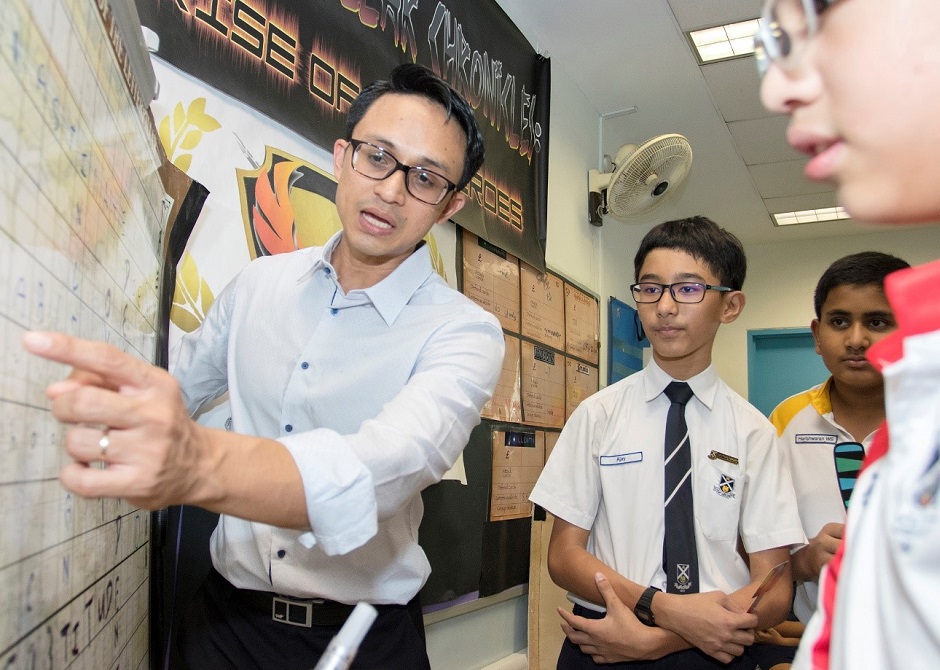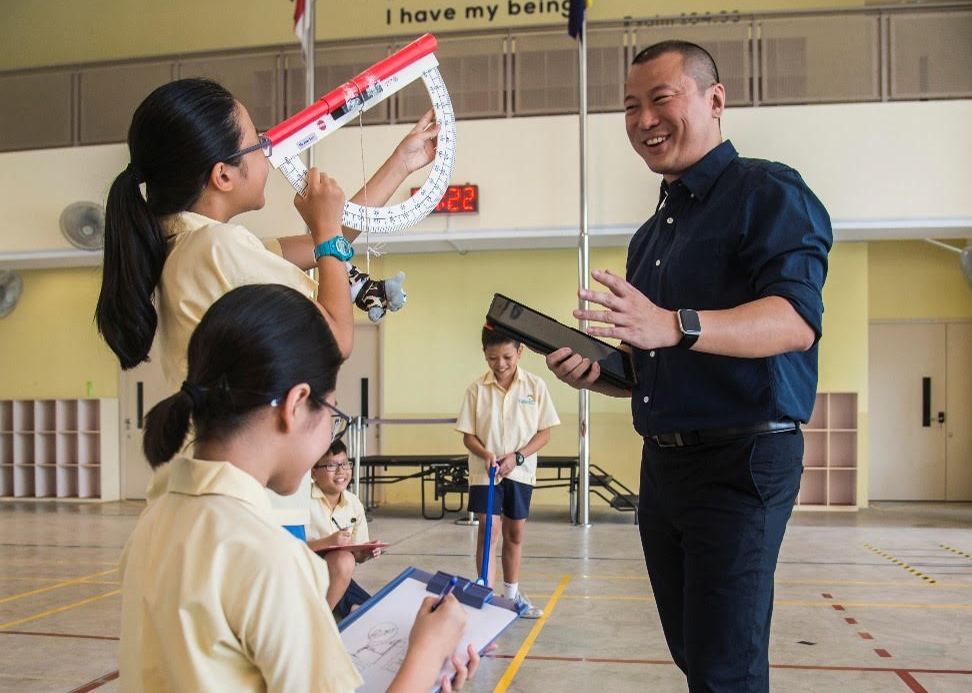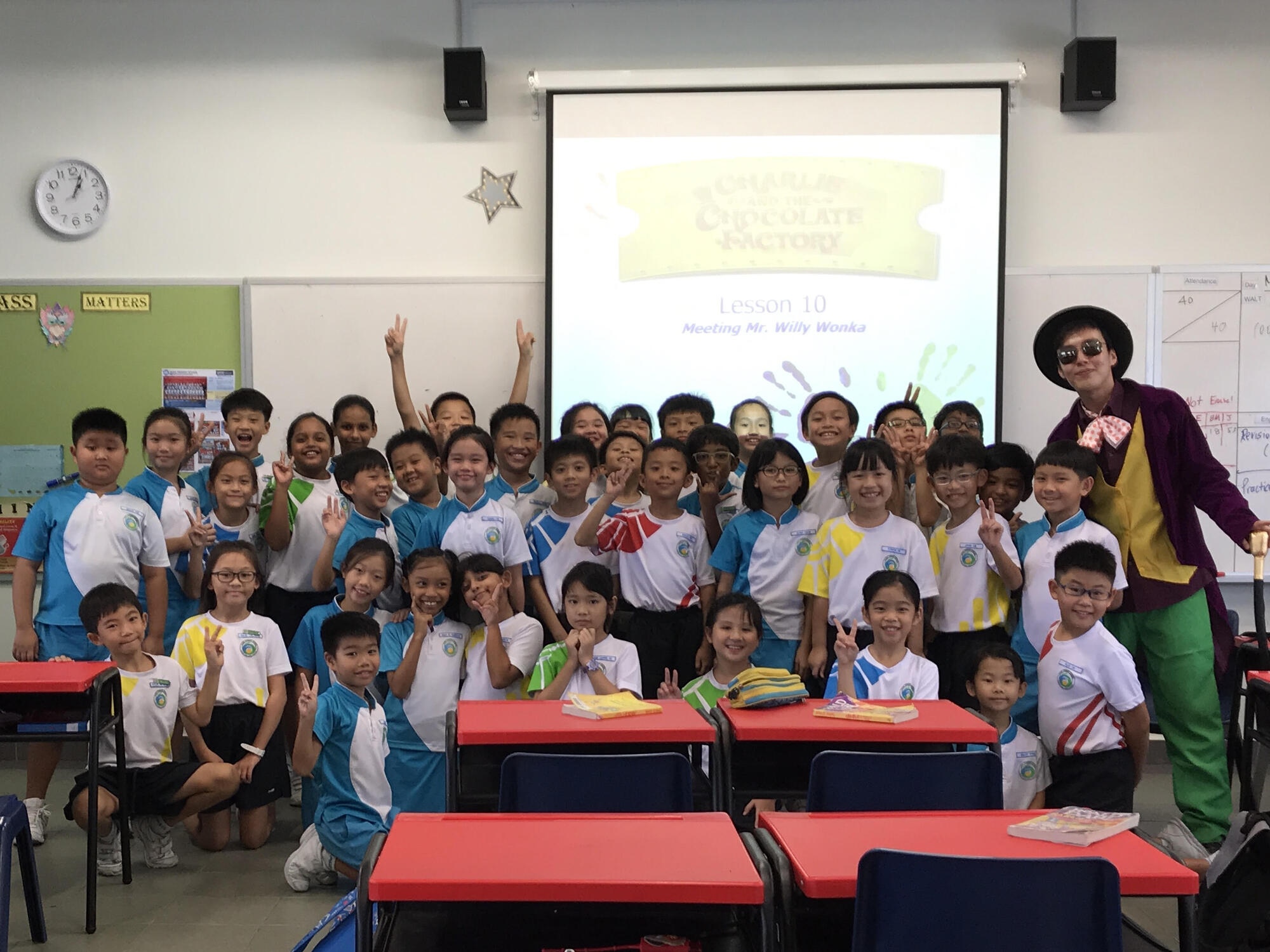Mr Ong Yong Cheng Matthew, St Andrew’s Junior School, President’s Award for Teachers 2018 Recipient
When students step into Mr Matthew Ong’s English Language class, they enter a fascinating world of heroes and villains, mystery and intrigue. The ultimate baddie, LetterPillar, is stealing words from English language, putting all of civilisation at risk.
His minions include Dr Verbose, who messes up verbs, and Sentence Sasquatch, who does the same with sentences. What can the boys of St Andrew’s Junior School do to save the day?
They can find and catch the villains by guessing mystery words relating to their locations. They can uncover missing letters used in these words by earning “letter dollars”, to help them along. If they are still not sure, they can summon literary heroes like Li Bai, Walt Whitman and Edwin Thumboo – all of whom have different powers – to come to the rescue. This assistance comes at a greater cost though: the students need to recite poems.
While it is not uncommon for teachers to use games to spice up lessons, “The Revenge of the LetterPillar” is no game – it is an entire world and unfolds over weeks. There is also a big 20 by 20 leaderboard in his students’ classrooms, showing the progress various groups have made in finding LetterPillar and his lackeys.
All this is a very elaborate and entertaining way to teach students vocabulary, poetry, and life lessons. Matthew uses letter dollars as incentives for good work and behaviour. His students can also work together to get words more easily. If they hand in group work on time or share their compositions, they can get promoted to the ranks of lieutenant, captain or general and access new abilities.
Matthew’s dream is to come up with a scalable version of LetterPillar that can be run in other classes, and even other schools. To this end, he has taken online coding courses with Coursera and Udemy, and is working closely with his school’s IT department.
Spinning a marvellous yarn
The sprawling world of LetterPillar is just one example of Matthew’s ability to find a good story in anything.
The History graduate once turned his mind to the symbols in St Andrew’s Junior School’s crest — a blue shield, keys, a tiger — and collaborated with colleagues on a fantasy short story to inspire his students. The symbols became “the azure shield” and “the keys of imagination”, and the tiger had a backstory of being raised by cows, thinking of itself as a cow, and defending them courageously when a group of tigers descended upon them. He called the story “The Legend of the Heart Courageous”.
While being an imaginative spirit, Matthew also listens keenly to other people’s stories — particularly those of fellow educators. He has collected several inspirational tales on self-knowledge, dealing with students, discipline, leadership and morals into a 147-page tome, and hopes that teachers will find it useful. He has also given talks on the topic.
Inspirational chess
Being able to find a story in anything, Matthew can also pull out learning points from unexpected places — such as a game of chess.
It began with a conversation he had with a boy who had a complicated family background, and was suffering from low self-esteem. “I asked him one day, ‘When you look at the mirror what do you see?’ And he said ‘I see a piece of trash’. As an educator, it was one of the most heart-breaking things to hear, to actually hear an 11-year-old child articulate that he [believes that he] is worthless.”
Matthew knew that the boy was interested in chess and so one day, he spoke with him about Mathematics in the game of chess. He drew simple, symmetrical shapes, and asked the student what he thought they were. The student pondered over it for a while and it dawned on him that the shapes represented the movements of the knight.
That sparked off some excitement and a sense of wonder. “That moment when the child goes ‘Hey!’, you know you have made a connection,” says Matthew. “For many of the students, that connection is far more important than English, Mathematics or Science.”
He sees this as his duty. “Love your students. It’s like you are given a glass key. It’s very fragile. You can use it to open their hearts and minds but with that connection is a heavy responsibility — what do you teach them? If they can love themselves for who they are — that is a really powerful thing.”
“Mr Ong uses games to teach English, and this makes the lesson very interesting. When we recite well-known poems in class, we get to use the poets as characters in the game. So the game helps us in our compositions, and also helps us to think strategically.” – Jared Ho, Primary 6






